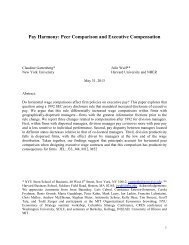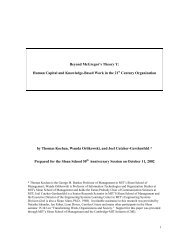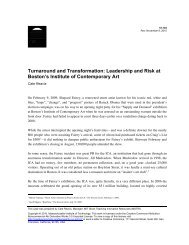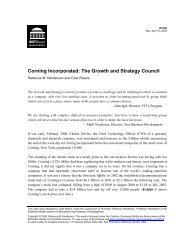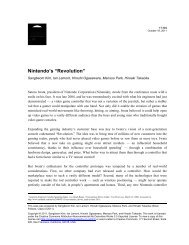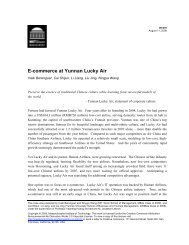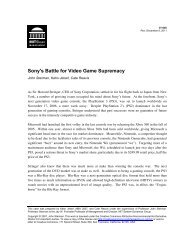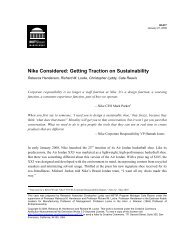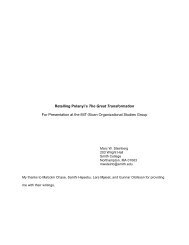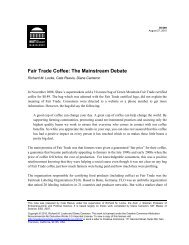Understanding earnings quality - MIT Sloan School of Management
Understanding earnings quality - MIT Sloan School of Management
Understanding earnings quality - MIT Sloan School of Management
You also want an ePaper? Increase the reach of your titles
YUMPU automatically turns print PDFs into web optimized ePapers that Google loves.
differences, which investors rationally interpret as a "red flag" for decreasing persistence (Hanlon,<br />
2005).<br />
The mispricing even exists at the time <strong>of</strong> an IPO or SEO (Rangan, 1998; Teoh et al., 1998;<br />
DuCharme, Malatesta, and Sefcik, 2004). These results contradict the notion that investors<br />
anticipate <strong>earnings</strong> management in cases when it is likely. More consistent with investor<br />
anticipation, Shivakumar (2000) finds evidence <strong>of</strong> abnormal accruals prior to SEOs but not<br />
mispricing. DuCharme et al. (2004) find that the likelihood <strong>of</strong> litigation is positively associated with<br />
abnormal accruals around equity <strong>of</strong>ferings, which begs the question whether issuers anticipate the<br />
litigation risk.<br />
6.1.2 Market valuation<br />
Discretionary loss reserves are associated with lower market valuations in the P&C insurance<br />
industry (Petroni, Ryan, and Wahlen, 2000; Beaver and McNichols, 1998) and in the banking<br />
industry (Beaver and Engel, 1996). Firms that consistently meet or beat prior period <strong>earnings</strong> have<br />
higher price-<strong>earnings</strong> ratios or market-multiples than matched samples (Barth, Elliott, and Finn,<br />
1999; Myers, Myers, and Skinner, 2007) even if there is evidence <strong>of</strong> <strong>earnings</strong> management to<br />
achieve the results (Myers, Myers, and Skinner, 2007). Kasznik and McNichols (2002) document<br />
that firms that meet analyst expectations do not get rewarded with higher relative valuations unless<br />
they meet them consistently. When firms eventually miss a target, they are likely to immediately<br />
lose the extra valuation (e.g., Skinner and <strong>Sloan</strong>, 2000; Myers, Myers, and Skinner, 2007).<br />
124



